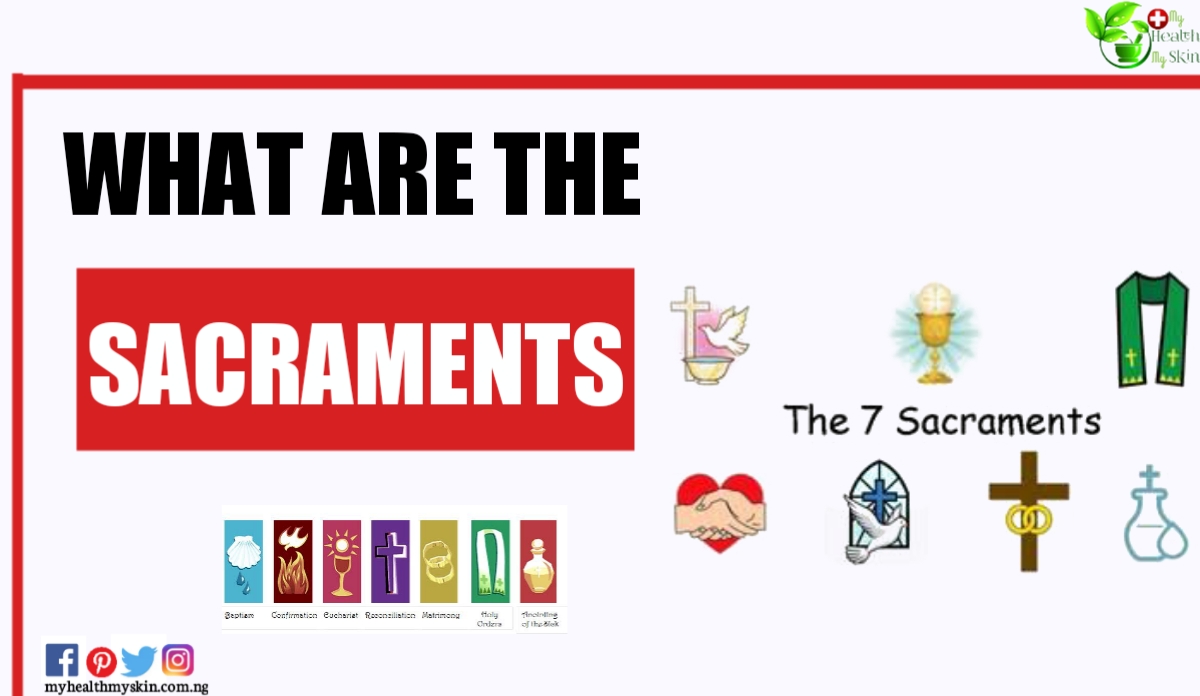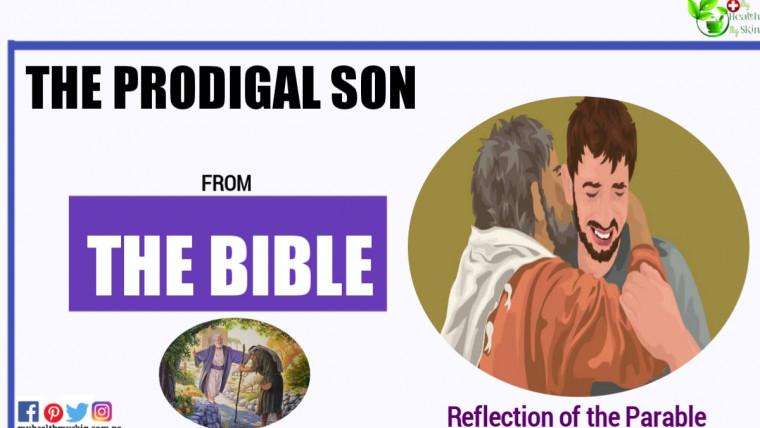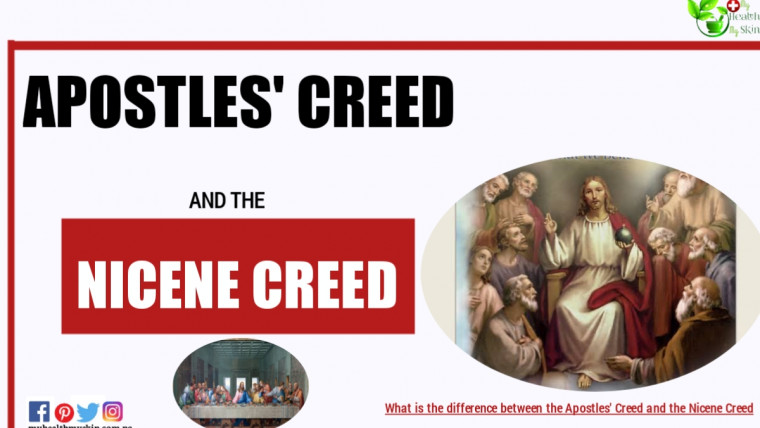One of the biggest difference between the Catholic faith and the non-Catholic faith is belief in the sacraments.
The Catholic Church places a lot of emphasis on the sacraments when other churches do not. To see more post on Spiritual Health click here.
Have you ever wondered why? Perhaps you have been asked or have you wondered what a sacrament is?
What do we have sacraments for? Why are they considered so important in the church?
In this article I would like to talk a little about that topic. I have been asked personally and I myself have asked myself about the sacraments and their importance, and that is why I would like to share this topic with you.
Definition: What Are The Sacraments?
The page “definition.de” defines a sacrament in this way:
Sacramento is a concept that comes from the Latin sacramentum. In the field of the Christian religion, certain rituals that allow divine action in the human being are called sacraments.
A sacrament, in this sense, is a sensitive sign of God’s grace.
Wikipedia defines the word this way:
In Christianity, a sacrament is an act by which the believer manifests his relationship with God.
The various Christian currents disagree on the acts that should be considered sacraments, as well as on their formalities.
Some other time I heard people say that a sacrament is a sign of something that is not seen. But what does the church say about respect?
The Catholic Church through the catechism defines a sacrament in this way:
The Catechism of the Church Numeral 1210 says “The sacraments of the New Law were instituted by Christ and there are seven, namely, Baptism, Confirmation, Eucharist, Penance, Anointing of the Sick, Priestly Order and Marriage”.
The seven sacraments correspond to all the stages and all the important moments in the life of the Christian: they give birth and growth, healing and mission to the life of faith of Christians.
There is here a certain resemblance between the stages of natural life and the stages of spiritual life (cf. St. Thomas Aquinas, Summa theologiae 3, q. 65, a.1, c).
But when reading the definition of the dictionary, of Wikipedia, of the catechism, there is still doubt and difficulty to explain what a sacrament is, if someone were to ask me, and I wanted to define it briefly.
Combining all the definitions and Catholic theology, the definition that I liked the most because it made it easier for me to understand and explain is that a sacrament is: a sensible and effective sign of God’s grace, which was instituted by Jesus Christ and entrusted to the Church by which eternal life is granted or facilitated.
I would like to explain a little why I like this definition, let’s break down the phrase.
A sensible and effective sign of the grace of God, which was instituted by Jesus Christ and entrusted to the Church by which eternal life is granted or facilitated:
It is a sign or a symbol, but more than a symbol it is effective, in other words, it has a function and it is effective.
When I think of a symbol I usually think of something simply symbolic, but a sacrament is not simply symbolic, it has a function and is effective in its function.
The main function is to give us the grace of God at different stages of our life. It is sensitive because all the sacraments involve one of our five senses. A sacrament is something we can see, touch, smell, hear, or taste.
A sensible and effective sign of the grace of God, which was instituted by Jesus Christ and entrusted to the Church by which eternal life is granted or facilitated:
The main purpose of a sacrament is to distribute God’s grace. A sacrament can be seen as a channel that brings us the grace of God.
It can be thought of as a messenger or a messenger or giver of God’s grace.
Perhaps we can think of the sacraments as the postmen of the grace of God, is delivering the letters that is the grace of God.
A sensible and effective sign of the grace of God, which was instituted by Jesus Christ and entrusted to the Church by which eternal life is granted or facilitated:
It is important to recognize that the sacraments were instituted by Jesus Christ, this means that the sacraments were not created by the church or invented.
The sacraments were created and founded by Jesus Christ himself when he was with us on earth, in his humanity.
After his ascension to heaven, the sacraments did not disappear, but he entrusted them to his apostles to continue with the sacraments and use it to distribute and distribute his grace.
The distribution of the sacraments was mandated by Jesus himself to the apostles and to his church.
For example, in Matthew 28:19 we see the command to baptize:
19 Go therefore and make disciples of [ a ] all nations, baptizing them in the name of the Father and of the Son and of the Holy Spirit.
This is one of the reasons why it is important to know which church was that Jesus founded, because to that church he entrusted his sacraments and their distribution.
A sensible and effective sign of the grace of God, which was instituted by Jesus Christ and entrusted to the Church by which eternal life is granted or facilitated:
The sacraments are more than a symbol or sign, they are methods by which we receive or are facilitated eternal life.
The catechism of the church shows us how the sacraments correspond to different stages of our life as Christians.
They give us birth, growth, healing and mission, each sacrament helps us get closer and closer to eternal life.
For this reason I have heard it said that the sacraments are channels that give us the power to continue fighting and to continue walking on the path of life in order to reach eternal life.
What are the Sacraments Of the Church?
The church recognizes seven sacraments and divides them into three categories based on what stage of your life or what is the function of the sacrament, they are:
Sacraments Of Initiation
- Baptism
- Confirmation
- Eucharist
Sacraments Of Healing
- Penance
- Anointing of the Sick
Sacraments Of Service
- Priestly order
- Marriage
The Sacraments Of Initiation
The sacraments of initiation are classified as initiation, because they are the fundamental or essential sacraments for the Christian faith.
They are the sacraments that create the foundation or basis for the other sacraments.
By receiving the sacraments of initiation you are starting anew, you are a new creature and you are starting a new life.
What is Baptism?
The Catechism of the Catholic Church teaches us the following about baptism:
1277 Baptism constitutes the birth to new life in Christ. According to the Lord’s will, it is necessary for salvation, as is the Church itself, into which Baptism introduces.
In other words, through the sacrament of baptism we are born again. Baptism is necessary for salvation.
Baptism is the first sacrament, it is the one that does not open the doors to salvation.
1279 The fruit of Baptism, or baptismal grace, is a rich reality that includes: the forgiveness of original sin and all personal sins; the birth to the new life, by which man is made the adoptive son of the Father, a member of Christ, the temple of the Holy Spirit.
By the very action of baptism, the baptized person is incorporated into the Church, the Body of Christ, and made a participant in the priesthood of Christ.
The result of baptism is that it erases original sin, the sin that we inherited from our parents Adam and Eve.
Baptism makes us children of God and makes us part of the other baptized brothers, in other words, it makes us members of a family.
1280 Baptism imprints on the soul an indelible spiritual sign, character, which consecrates the baptized person to the cult of the Christian religion.
For reasons of character, Baptism cannot be repeated (cf DS 1609 and 1624).
Baptism gives us an indelible (unchangeable) sign to our character. For this reason if we have been legitimately baptized, we will never have to be baptized again. Baptism is one, since it creates an unchangeable character for us.
And Why Do Catholics Baptize Children?
There are many reasons why Catholics baptize children and I will write a short article on the subject later.
But to give a simple and brief answer, we baptize children because we want the best for them.
If we believe that baptism is to be born again with Christ, if we think that it is to be part of the family called church and if we believe that it erases original sin.
Don’t you want to give the best to your children?
The church catechism mentions the following in 1282
1282 From the most ancient times, Baptism is given to children, because it is a grace and a gift from God that does not suppose human merits; children are baptized in the faith of the Church.
Entry into the Christian life gives access to true freedom.
As you can see, baptism is a sacrament, because it is sensitive (we use water which we can touch, feel, see and even smell), it is effective in helping us live the life of holiness.
Baptism as a sacrament unites us to the family of God and opens the way to salvation.
External Sign: Water (cleanses and purifies)
Internal Sign: Indelible character that we receive
Frequency: Should be received only once in a lifetime
What is Confirmation?
Confirmation is another of the initial sacraments, but there is a lot of confusion with this sacrament, because there are people who believe it is not necessary.
And others confuse confirmation with baptism, in the sense that they think that the Holy Spirit comes in confirmation and not in baptism.
Confirmation along with baptism are a complement. Confirmation can be said to complete the grace received at baptism.
In baptism, the Holy Spirit is received, but in confirmation the Holy Spirit strengthens and perfects that grace that we have, it helps us to produce more fruit, to have courage to defend our faith, to grow in virtues and gifts.
The Catechism of the Catholic Church teaches us the following about confirmation:
1315 “When the Apostles who were in Jerusalem learned that Samaria had accepted the Word of God, they sent Peter and John to them.
They came down and prayed for them to receive the Holy Spirit; for it had not yet descended on any of them; they had only been baptized in the name of the Lord Jesus.
Then they laid hands on them and they received the Holy Spirit ”( Acts 8,14-17).
This Bible verse teaches us that confirmation and baptism are both necessary and different.
Here he tells us that they prayed for some who had only received the Holy Ghost through baptism, and laid their hands on him to receive the Holy Ghost.
In other words, the laying on of hands was to strengthen and grow in the Spirit, which we today call confirmation.
1316 Confirmation perfects baptismal grace; It is the sacrament given by the Holy Spirit to root us more deeply in divine sonship, to incorporate us more firmly into Christ, to strengthen our bond with the Church, to associate us even more with her mission and to help us to bear witness to the Christian faith through the word accompanied by the works.
The result and purpose of confirmation is to perfect our grace. It is a saying if I believe and am willing to surrender and defend the faith as God wants.
Confirmation is a continuation of baptism, the same Spirit, but strengthened, and helping us to grow in gifts and virtues.
1317 Confirmation, like Baptism, imprints on the soul of the Christian a spiritual sign or indelible character; This is why this sacrament can only be received once in a lifetime.
Like baptism, confirmation gives us an internal sign or character that does not change.
For this reason, confirmation should only be done once in our lives.
Some of the effects of receiving the Sacrament of Confirmation are:
- We receive and increase the gifts of the holy spirit
- Piety
- Fear of God
- Prudence
- Strength
tip - Science
- Wisdom
- We receive the strength of the holy spirit
- Fullness of the grace of baptism
- It introduces us more to our relationship with the church
External Sign: Oil, I have laying on of hands
Inner Sign: Indelible character that we receive, gifts of the Holy Spirit
Frequency: Should be received only once in a lifetime
What is the Eucharist?
The Eucharist has several names, and each name represents an essential part of the sacrament.
The sacrament of the Eucharist is the last of the three initiation sacraments.
The sacrament is the great difference between the Catholic Church and other churches, since the Catholic Church is the only one to which Jesus gave the power to have a legitimate Eucharist.
When we speak of the Eucharist, we may be referring to the mass, communion, the banquet, the memorial or the sacrifice. All are valid and all have a part or representation of the sacrament.
In this section I am going to focus on the Eucharist as the body and blood of Christ.
The catechism of the church says the following of the Eucharist:
1406 Jesus said: “I am the living bread, come down from heaven. If one eats of this bread, he will live forever. He who eats my Flesh and drinks my Blood has eternal life […] abides in me and I in him ”( Jn 6, 51.54.56).
In the book of John chapter six in the bible, Jesus himself tells us that he is the bread from heaven, that the bread that he shares at the table is his own flesh and blood.
This is what we Catholics believe through the sacrament of the Eucharist. That we are sharing and receiving Jesus in body and blood.
Most churches see this passage and this teaching of Jesus as a symbol and not the true body and blood.
But Catholics see it as body and blood because that is what Jesus says. In the same way, in the same chapter, some disciples left after saying this because they said it was very difficult to follow.
Jesus did not correct them or tell them not to go that it was just a symbol. If it was just a symbol he would not allow them to get away from him because of a misunderstanding, so easy to clarify.
1407 The Eucharist is the heart and summit of the Church’s life, since in it Christ associates his Church and all its members with his sacrifice of praise and thanksgiving offered once for all on the cross to his Father; Through this sacrifice he pours out the graces of salvation on his Body, which is the Church.
The Eucharist is an essential sacrament in our life as believers.
Every time we receive the Eucharist, we are receiving Jesus, we are participating in his divinity, we are strengthening ourselves for the journey.
For this reason many of the first disciples and apostles died defending this belief, defending their faith.
The sacrament is known as the summit because it is to receive Jesus, it is to participate in his divine Eucharist, in his last supper, in his sacrifice, it is to participate in his action of grace.
Some of the effects of receiving the sacrament of the Eucharist:
- Receive strength in the form of grace
- We join our church brothers in fellowship
- We receive forgiveness of our venial sins
- We receive the divinity of God
- We become one with Jesus
External Sign: Receive, eat, body and blood
Internal Sign: communion with God and our brothers, venial sins are forgiven
Frequency: It can be received more than once in a lifetime
The Sacraments of Healing
The sacraments of initiation help us to enter the church, to belong to the church, and to be children of God.
But after the fall of Adam and Eve, we have a weak body, for this reason, we suffer ups and downs in life.
God recognizing that we are weak, that life is difficult for a fallen body, instituted the sacraments of healing for us, to help us strengthen our life, our physical and spiritual bodies for the journey.
The path is not easy, but with God and his sacraments it becomes easier for us.
What is the Sacrament of Penance?
The sacrament of penance, also known as reconciliation, or the sacrament of confession, is the sacrament that helps us heal internally. Through this sacrament we receive spiritual healing.
The Catechism of the Catholic Church says the following:
1485 On Easter evening, the Lord Jesus showed himself to his Apostles and said: “Receive the Holy Spirit. Those who forgive sins are forgiven; whoever you retain them, they are retained ”( Jn 20, 22-23).
Many times they ask us why to confess? why go to a priest? What power does a priest have over sins?
In the book of John we see how Jesus, before his ascension, instituted the sacrament of confession, giving the apostles the power to retain (not forgive) and forgive sins.
The reason why we have to confess our sins is because Jesus asked for it, but even more, the reason why he asked is because he knows that through this sacrament we receive internal healing.
A healing that we need to be able to continue on the path. As we are weak, we fall and it is important to recognize and know that we have the certainty from God that we are forgiven.
The sacrament is called penance, because we are penitent (repentant) when we invoke and seek forgiveness.
It is called reconciliation, because, through the sacraments, we unite with the church, we do not unite with God, we are once again in communion with God and his church.
It is called confession because, in order to receive forgiveness, we usually have to confess or declare that we are sinners and that we sin in one way or another.
Some of the effects of receiving the sacrament of reconciliation are:
- Reconciliation with God, by which we recover divine grace
- Reconciliation with the church, by which we unite with our brothers
- The forgiveness of mortal sins
- Peace and serenity of conscience
- Strength to move forward in life’s journey
External Sign: Prayer of absolution of the priest (listen and meditate)
Inner Sign: Peace, forgiveness of sins
Frequency: Can be received more than once in life
What Is The Sacrament Of The Anointing Of The Sick?
Sickness and suffering are one of the most serious problems that we encounter in human life.
In illness, we experience helplessness, we realize our limits and that our physical life is not eternal.
Many times illness causes us anguish, sometimes even despair and rebellion against God.
But at the same time it can make the person grow, help him to discern in his life what is not essential to turn towards what God wants. Very often, illness prompts a search for God, a return to Him.
That is why God instituted for us the sacrament of the anointing of the sick.
It is the sacrament by which the sick with serious, terminal or dangerous illnesses can receive spiritual and even physical relief from God.
The anointing of the sick is not magic or should be taken as a guarantee of healing or physical healing, it is rather a preparation of the soul and body for the will of God.
There are times when God has in his will to physically heal the person,but there are other occasions when he allows sickness for a greater good.
The Catechism of the Catholic Church says the following about the sacrament:
1526 “Is anyone among you sick? Call the priests of the Church to pray over him and anoint him with oil in the name of the Lord.
And the prayer of faith will save the sick, and the Lord will make him rise up, and if he has committed sins, they will be forgiven him ”( St 5: 14-15).
In this paragraph, the catechism is illustrating where in the sacred scriptures we can find the sacrament.
The book of James shows us that Jesus asked priests, elders or presbyters to ask for the sick.
1527 The purpose of the sacrament of the Anointing of the Sick is to confer a special grace on the Christian who experiences the difficulties inherent in the state of serious illness or old age.
The sacrament as such, helps the sick to face their illness as well as to strengthen those around the sick through the inner healing of the sick.
The grace provided by the sacrament is a grace of strength, the grace that helps the sick to face whatever sickness brings. But more importantly, it helps the sick to prepare in case they have to leave the world.
Some of the effects of receiving the sacrament of reconciliation are:
- The union of the sick person to the Passion of Christ, for their good and that of the whole Church
- The comfort, peace and courage to bear the sufferings of illness or old age as a Christian
- The forgiveness of sins if the sick person has not been able to obtain it through the sacrament of penance
- The restoration of bodily health, if it suits spiritual health
- Preparation if you have to leave the world
External Sign: Prayer, Anointing with Oil
Inner Sign: Inner healing, strength and peace
Frequency: Can be received more than once in life
The Sacraments of Service
The sacraments of initiation are sacraments that mainly serve or provide grace and strength to the person who receives them, and as a secondary effect helps the community.
The sacraments of healing also mainly serve or help the recipient and as a secondary effect to the community. The sacraments of service change the order.
The sacraments of service first serve or provide grace and strength for the community or neighbor and as a secondary personal effect.
That is why they are called sacraments of service, because they were instituted to serve the other, the neighbor.
What Is The Sacrament Of Orders?
The sacrament of Holy Orders is the sacrament of separation for a special function in the church.
Order in church terms means separate. In other words, when someone belongs to an order, they are being called, separated or chosen for something different or specific.
The sacrament of Holy Orders is the sacrament that provides us with apostolic ministers, in other words, the ministers who follow the apostolic chain (from the apostles).
The sacrament of Holy Orders contains three specific levels or three branches; episcopal (bishops), priest (priests), diaconal (deacons).
The Catechism of the Catholic Church says the following about order:
1590 Saint Paul says to his disciple Timothy: “I recommend that you rekindle the charism of God that is in you through the imposition of my hands” ( 2 Tim 1,6), and “if anyone aspires to the office of bishop, he desires a noble function ”( 1 Tm 3,1).
To Titus he said: “The reason for leaving you in Crete was so that you could finish organizing what was missing and establish priests in each city, as I ordered you” (Tt 1,5).
This paragraph shows us how to practice the sacrament of Holy Orders. The sacrament is carried out by the laying on of hands.
A bishop lays down his hands to ordain a presbyter (priest), or deacon.
The purpose of the sacrament of Holy Orders is to ordain persons to the church and community service office or position.
The bishop’s main job is to shepherd the sheep of his flock (diocese), and guide them spiritually and morally.
The presbyter or priest is the assistant to the bishop in a diocese and helps by serving a particular or assigned church or community.
The deacon serves or assists the bishop and priest in a diocese, community, or parish.
For this reason the sacrament of Holy Orders is a sacrament of service. Service of the bishop, pastor or deacon to his community, church or diocese.
Order is one of the sacraments that creates an indelible character in the person.
External Sign: Prayer, laying on of hands
Inner Sign:Strength, Peace, Indelible character
Frequency: Received only once per degree (deacon, priesthood, or bishop)
What Is the Sacrament Of Marriage?
The sacrament of marriage is the sacrament of the union of a man and a woman. Before they were two and then they become one person.
Marriage is a sacrament of service because the husband is to serve his wife and the wife to serve her husband.
Together they become one flesh and have the function or task of forming a home and being open to recreation.
Marriage is a vocation, which means a path to holiness, a calling. It is a gift from God by which God gives a special grace. God unites the two hearts into one through his grace.
Marriage gives you supernatural strength to carry the marriage forward.
The Catechism of the Catholic Church says the following about marriage:
1659 Saint Paul says: “Husbands, love your wives as Christ loved the Church. This is a great mystery, I say it with regard to Christ and the Church” ( Eph 5,25,32).
Saint Paul in his letter to the Ephesians shows us how marriage is a sacrament of service.
It is a service of the husband loving and giving everything for his wife and wife alike.
1661 The Sacrament of Matrimony signifies the union of Christ with the Church. Give spouses the grace to love each other with the love with which Christ loved his Church;
The grace of the sacrament thus perfects the human love of the spouses, reaffirms their indissoluble unity and sanctifies them on the path of eternal life (cf. Council of Trent: DS 1799).
Marriage is a very important sacrament in faith and in the community because through marriage God allows recreation and the foundation of the community.
Marriage is an example or a visible sign of God’s love for His church as the incredible love of the Holy Trinity.
Marriage is the domestic church, with the function of creating, teaching and strengthening the children and community.
Marriage as such is a great union between two people with GOD. People make a commitment to each other, to love each other and remain united until death do them part and always open to fertility to procreate if it is God’s will.
For this reason the three essential foundations of marriage are:
- Unit
- Indissolubility
- Openness to fertility
External Sign: Marriage union, surrendering body and soul
Inner Sign: Grace of God to be able to continue and grow together in love
Frequency: It can be received more than once (if one of the members dies)
These are the seven sacraments of the church: Baptism, Confirmation, Eucharist, Reconciliation, Anointing of the Sick, Order and Marriage.
As you can see, each one helps you in a different way to continue the path of life, to continue the journey, not to faint.
The sacraments are essential in my life and I know they are in yours as well.
Remember they are sensible signs, instituted by Jesus himself for your good, for your blessing and for your walk. The sacraments help you love as God loves.
God bless you!

Share this article






